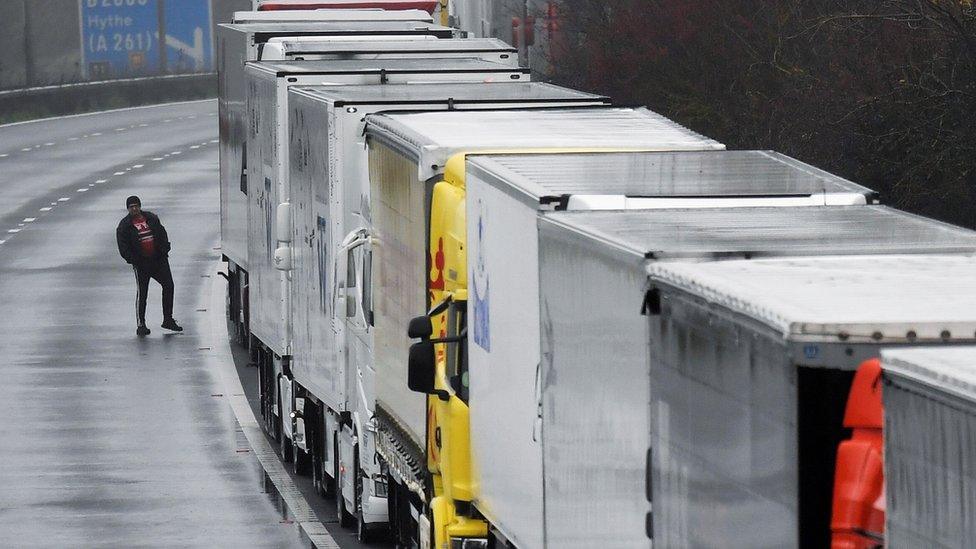Coronavirus, Brexit, Christmas: How a dramatic week in the UK unfolded
- Published
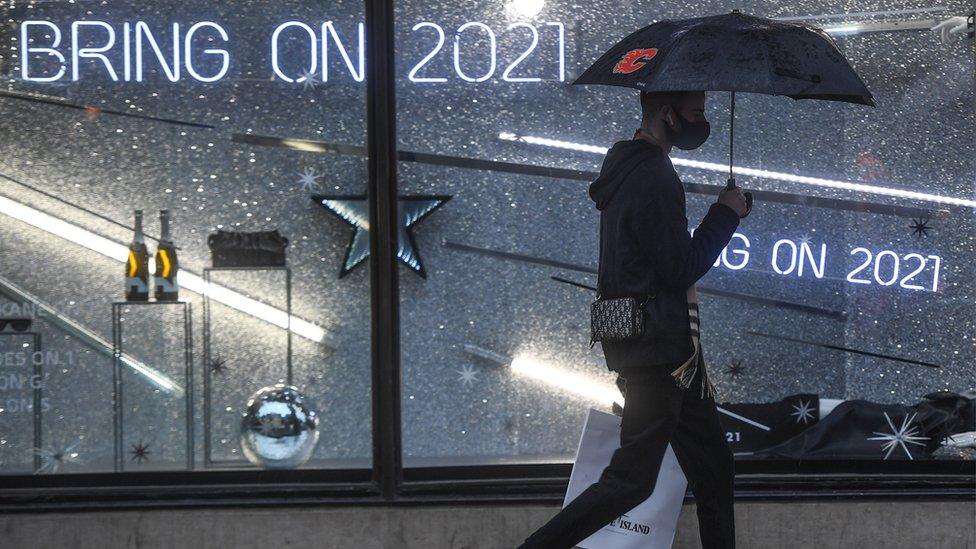
It's a sentiment shared by many...
One year ago, it would have been unlikely even in your wildest, most surreal dreams for a headline to appear reading: "Europe moves to isolate UK as mutant virus spoils Christmas." But here we are.
It's fair to say an escalating pandemic, a looming Brexit deadline and the mass cancellation of flights has made for a somewhat chaotic end to the year.
This is how it all unfolded.

Monday 14 December: We hear about a mutant virus
What felt like a sudden flurry of difficult news began when Health Secretary Matt Hancock held a press conference and announced a new variant of the coronavirus had been found.
It's thought the mutation is able to spread more easily. It is still being analysed by scientists, but the government has warned it could be up to 70% more transmissible.
"Mutant" isn't a word people like to see in headlines, and the announcement quickly sowed uncertainty. Many were left with questions about what this could mean for the pandemic as a whole.
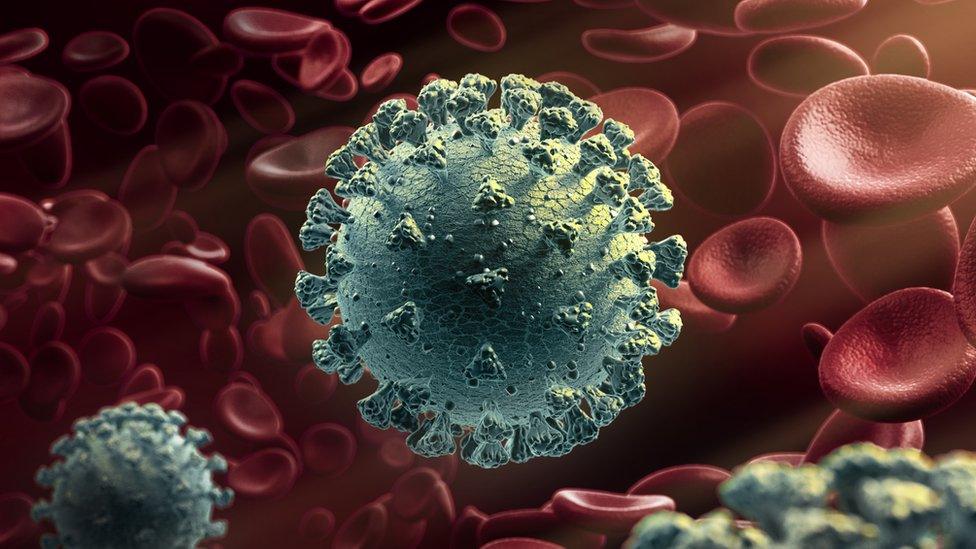
Existing vaccines will almost certainly work against the new coronavirus variant
If the new virus is more able to transmit then it could mean hospitals reach their capacity sooner as more people become infected, scientists warned.
But existing vaccines will almost certainly work against this new variant, and there is as yet no evidence to suggest it is more deadly.
Plus, as our health correspondent James Gallagher writes, viruses mutate all the time and this has happened before even with the coronavirus.

Saturday 19 December: Then it spoils Christmas
When the new variant was announced, the relaxation of coronavirus rules around the UK for five days over Christmas had already been in place for weeks, and plans had been made. Millions of people had booked transport and ordered food ahead of the big day.
"This one day was going to be a day to forget about everything," one Londoner, Ceyda Oz, told the BBC.
But then, on Saturday, Prime Minister Boris Johnson announced a dramatic and unexpected tightening of restrictions.
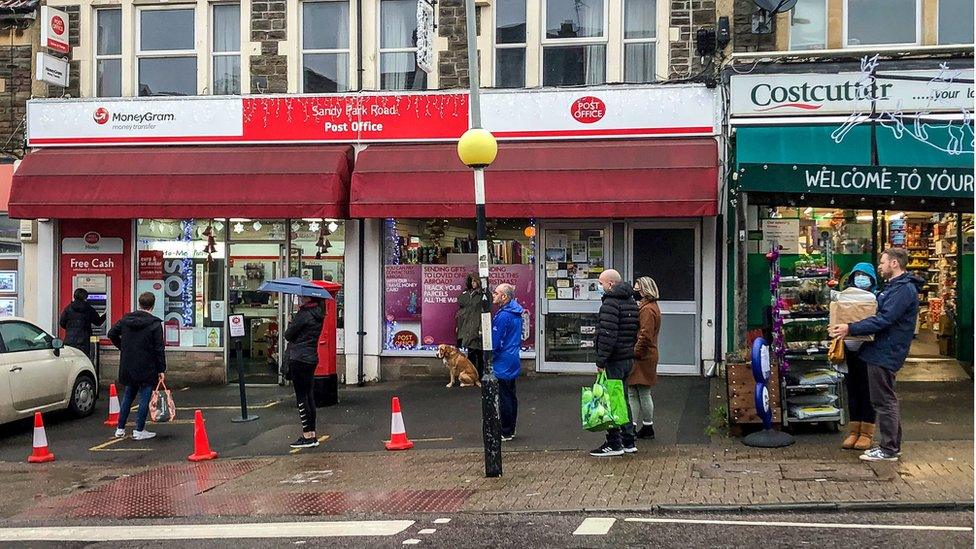
With many people likely to spend Christmas apart, post offices have seen long queues
A matter of days after saying it would be "inhuman" to change the rules at that late stage, the planned relaxation of measures for London and much of south-east England was scrapped due to the alarming rates of infection there.
For the rest of the country, the relaxation of rules for meeting family and friends indoors was limited to just one day - Christmas Day.
It meant millions had to scrap plans at short notice, and in those areas with the tightest restrictions, people faced the sudden prospect of spending Christmas alone.
In London, the announcement prompted a rush for the railway stations as people sought to leave the capital before the rules came into force on Sunday. By 19:00 GMT, there were no tickets available online from several stations in the city.
Allow X content?
This article contains content provided by X. We ask for your permission before anything is loaded, as they may be using cookies and other technologies. You may want to read X’s cookie policy, external and privacy policy, external before accepting. To view this content choose ‘accept and continue’.

For those who stayed, and for those around the UK who were affected by the restrictions, Christmas suddenly looked very different. The strangeness of the situation was summed up by the newspapers the following day.
"Christmas is cancelled by surging mutant virus", read The Sunday Times.
Sunday 20 December: Borders begin to close
It began with the Netherlands, but on Sunday many European nations woke up to the implications of a variant of the virus that spreads with greater ease.
The new strain of coronavirus triggered a wave of countries to ban UK arrivals. Belgium, Canada, Germany, Ireland and Italy, all announced the move as did India and Hong Kong.
This only compounded the confusion over Christmas, with British people in Europe and Europeans in the UK left stranded and unsure about whether they would be able to make it home in time.
Monday 21 December: 'Plague Island' starts to trend
By Monday, France had also closed its border for 48 hours, meaning lorries and cars were turned away from the port of Dover.
The rest of the world then also began to socially distance from the UK. In fact, "Plague Island" was soon trending on Twitter.
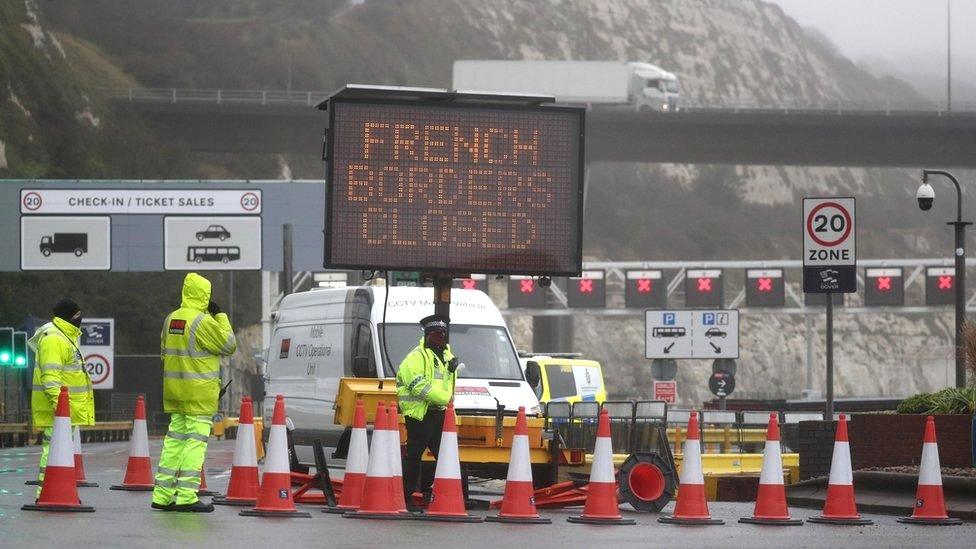
A host of European countries issued travel restrictions
There were very real concerns about the impact of these border closures in the UK. The supermarket chain Sainsbury's said that if the travel restrictions continued there could be some food shortages, including of salad leaves and citrus fruit.
Unlike the first lockdown in the spring, there have been no signs of panic buying - lettuce might be the first to go in the event of any shortages, but that is clearly not alarming the British public.
Officials from the food sector, as well as the UK government, have also said there is no need to rush to the shops.
Oh, and Brexit is around the corner
Even without a virus mutation, the possibility of a no-deal Brexit had already raised questions about import supplies to the UK.
So here's where we are with that: the European Union and the UK are still negotiating over a trade deal that would set out the terms for their future relationship. These talks have been going on for a while and even extended on a few occasions, but now a hard deadline is looming.
Time runs out on 31 December, and if a deal is not agreed by then the UK-EU relationship will likely change significantly. There could be higher prices in shops, as well as delays as lorries bringing products in would need further checks.
Ever get that feeling of déjà vu? There is still time, however, for both sides to agree a deal.
And there's room for optimism, too. Many people have pointed to the fact that, despite everything, the UK has at least passed the shortest day of the year.
So, whatever happens next, the days should at least be longer and (hopefully) a little brighter. Fingers crossed.
- Published21 December 2020
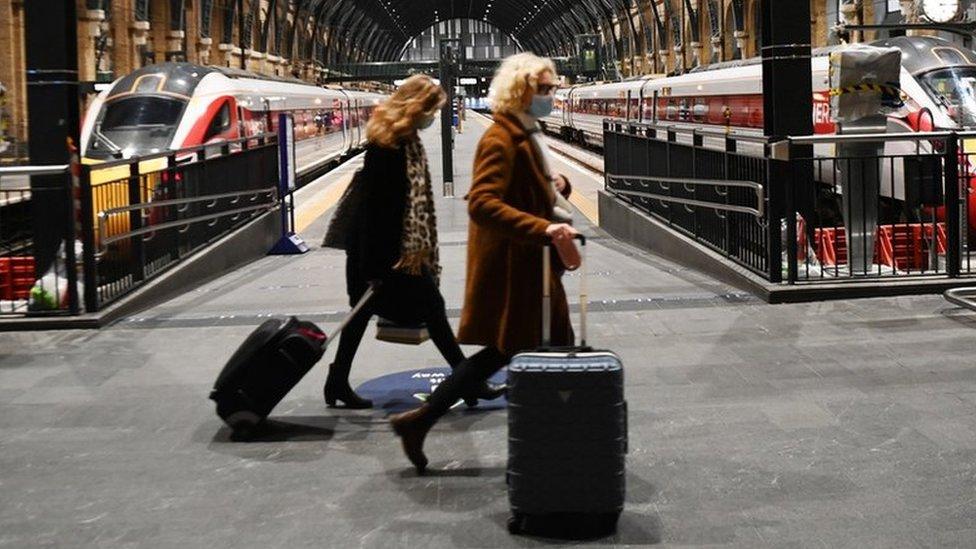
- Published21 December 2020
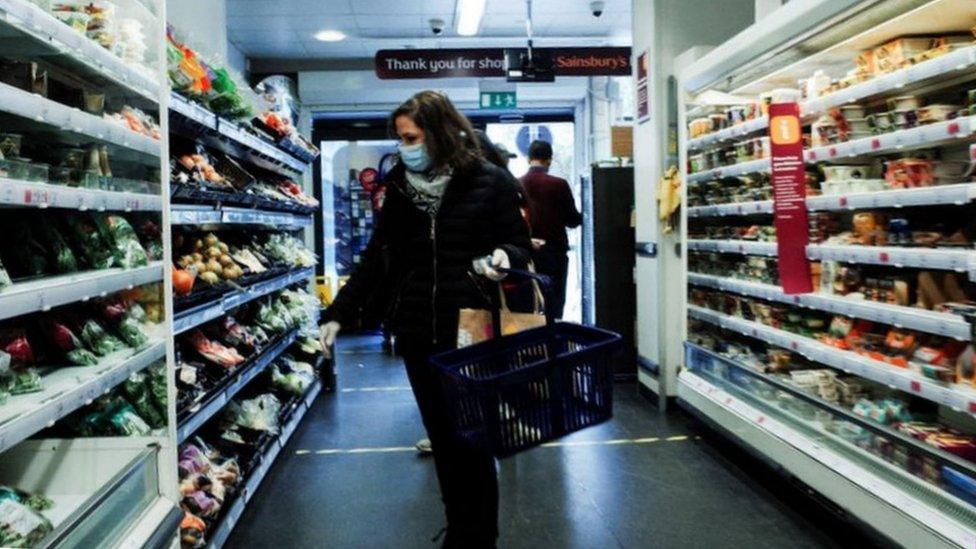
- Published21 December 2020
